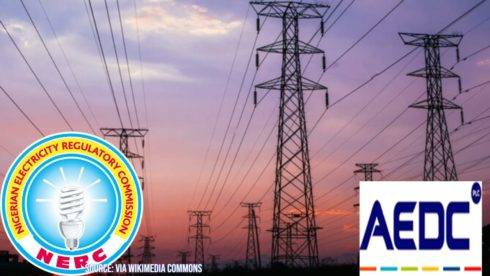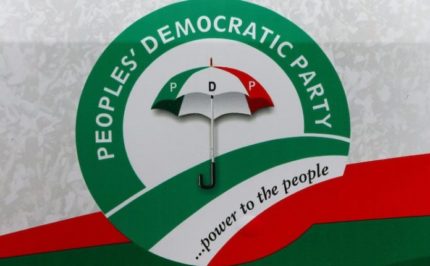The Nigerian Electricity Regulatory Commission (NERC) has taken decisive action against the Abuja Electricity Distribution Plc (AEDC) for its non-compliance with the Supplementary Order to the April 2024 Multi-Year Tariff Order. This enforcement action underscores NERC’s commitment to ensuring adherence to regulatory frameworks within the electricity sector. By imposing a fine of N200 million on AEDC, Nigerian Electricity Regulatory Commission aims to send a clear message to all electricity distributors about the importance of following prescribed guidelines and customer band classifications.
Nigerian Electricity Regulatory Commission’s decision to fine Abuja Electricity Distribution Company follows a thorough review process, including customer feedback, which highlighted discrepancies in billing practices. The regulator’s emphasis on fair billing practices reflects its dedication to protecting consumer rights and promoting transparency within the electricity distribution system. Through such enforcement measures, Nigerian Electricity Regulatory Commission strives to uphold the integrity of tariff structures and ensure equitable treatment for all customers.
Nigerian Electricity Regulatory Commission: Violation of Tariff Regulations by Abuja Electricity Distribution Company
A key aspect of Nigerian Electricity Regulatory Commission enforcement action against AEDC relates to the violation of tariff regulations specified in the April 2024 Multi-Year Tariff Order. AEDC’s failure to comply with prescribed customer band classifications has led to the imposition of significant penalties, including the directive to refund affected customers. This violation not only undermines the regulatory framework but also erodes trust in the electricity distribution sector.
The repercussions of AEDC’s non-compliance extend beyond financial penalties, impacting customer confidence and satisfaction. By implementing the new tariff across all customer categories without adhering to the prescribed guidelines, AEDC has demonstrated a disregard for regulatory requirements and consumer interests. Nigerian Electricity Regulatory Commission’s intervention seeks to rectify these issues and restore confidence in the integrity of tariff structures and billing practices.
Nigerian Electricity Regulatory Commission’s Stance: Fine and Refund Directive
Nigerian Electricity Regulatory Commission’s decision to fine AEDC N200 million serves as a significant deterrent against future instances of non-compliance within the electricity distribution sector. This substantial penalty underscores the seriousness with which Nigerian Electricity Regulatory Commission addresses violations of regulatory frameworks and ensures accountability among market participants. Additionally, the directive to refund customers in Bands B, C, D, and E reflects Nigerian Electricity Regulatory Commission’s commitment to protecting consumer rights and rectifying the consequences of AEDC’s actions.
The refund directive aims to mitigate the financial burden placed on affected customers due to incorrect billing practices. By reimbursing customers according to the prescribed tariff bands, Nigerian Electricity Regulatory Commission seeks to uphold fairness and transparency in electricity billing. Furthermore, this directive underscores the regulator’s proactive approach to addressing consumer grievances and maintaining trust in the regulatory process. Through such remedial measures, Nigerian Electricity Regulatory Commission aims to uphold the principles of equity and accountability within the electricity distribution sector.
Customer Impact and Feedback
The imposition of fines on AEDC and the directive to refund affected customers highlight the tangible impact of regulatory enforcement actions on consumer welfare. Customers in Bands B, C, D, and E stand to benefit from the refund directive, which aims to rectify overbilling issues resulting from AEDC’s non-compliance with tariff regulations. This demonstrates Nigerian Electricity Regulatory Commission’s responsiveness to consumer feedback and its commitment to addressing grievances promptly.
The refund process is expected to alleviate financial strain on affected customers and restore confidence in the fairness of electricity billing practices. By prioritizing consumer interests and holding electricity distributors accountable for their actions, Nigerian Electricity Regulatory Commission seeks to foster a regulatory environment conducive to consumer trust and satisfaction. Continued engagement with stakeholders and ongoing monitoring of compliance will be crucial in ensuring sustained improvements in service delivery and consumer welfare within the electricity sector.
Regulatory Oversight and Compliance Measures
Nigerian Electricity Regulatory Commission’s enforcement action against AEDC underscores the importance of robust regulatory oversight in safeguarding consumer interests and maintaining market integrity within the electricity sector. The imposition of fines and refund directives serves as a deterrent against non-compliance and reinforces the regulatory framework’s effectiveness. Moving forward, enhanced monitoring mechanisms and strict enforcement measures will be essential to prevent recurrence of similar violations and uphold regulatory standards.
By holding electricity distributors accountable for their actions and enforcing compliance with tariff regulations, Nigerian Electricity Regulatory Commission aims to instill confidence in the reliability and fairness of electricity services. Regulatory transparency and proactive enforcement play a vital role in fostering a competitive and sustainable electricity market that prioritizes consumer welfare and industry best practices. Through collaborative efforts with industry stakeholders, Nigerian Electricity Regulatory Commission seeks to build a regulatory environment that promotes accountability, innovation, and equitable access to electricity services.
Future Implications and Industry Dynamics
Nigerian Electricity Regulatory Commission’s enforcement action against AEDC carries broader implications for the electricity distribution sector, signaling the regulator’s unwavering commitment to enforcing regulatory compliance and protecting consumer interests. Market participants are expected to take heed of the consequences of non-compliance and prioritize adherence to regulatory frameworks to avoid similar penalties in the future. This underscores the importance of maintaining transparency, fairness, and accountability in all aspects of electricity distribution operations.
The regulatory landscape within the electricity sector is evolving, with a growing emphasis on consumer protection, market efficiency, and sustainable practices. Nigerian Electricity Regulatory Commission’s proactive enforcement measures reflect ongoing efforts to adapt to changing industry dynamics and address emerging challenges effectively. Moving forward, collaborative efforts between regulators, industry players, and consumers will be essential in driving positive outcomes and fostering a competitive electricity market that serves the interests of all stakeholders.
Table of Contents
Discover more from OGM News NG
Subscribe to get the latest posts sent to your email.














